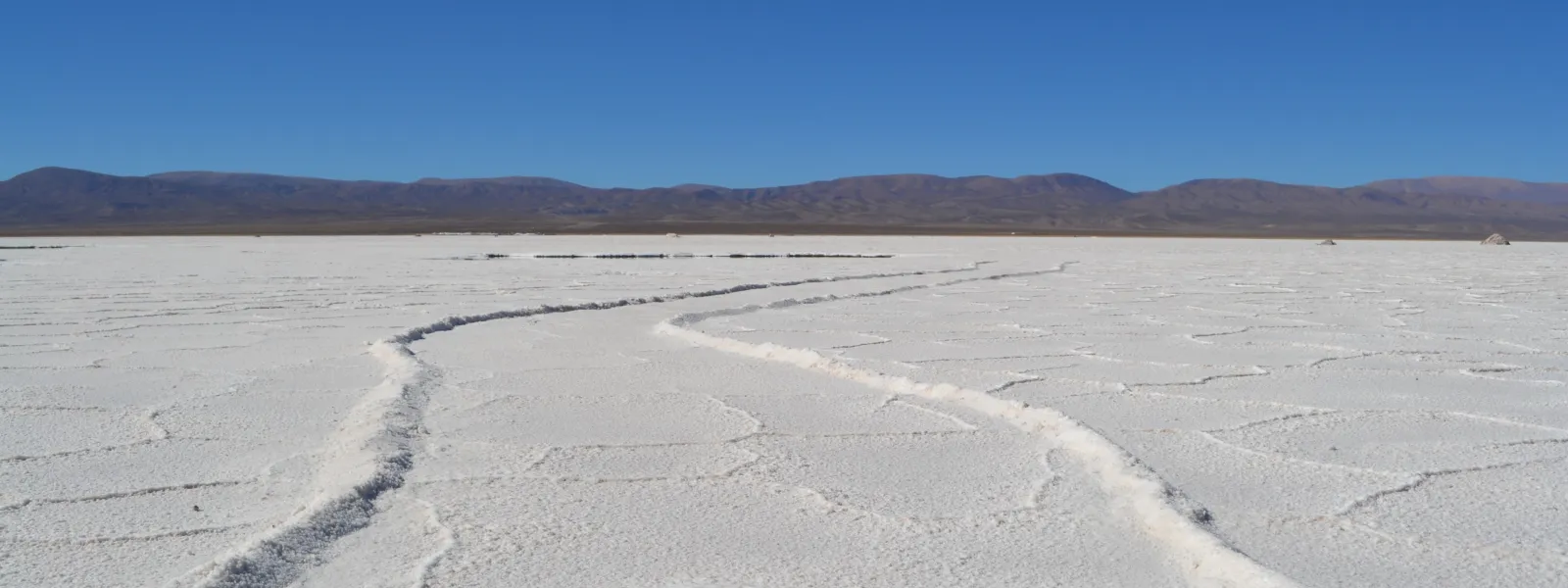
Lithium Fever: Indigenous Peoples’ Rights Under Attack in Jujuy, Argentina
Sofia Truppel/Unsplash
International Fact-finding Mission Report (21-25 August 2023)
Jujuy is one of the 23 autonomous provinces making up the federal state of the Argentine Republic. It is located in the north west of the country, bordering the Plurinational State of Bolivia and the Republic of Chile. According to the official census, it is one of the provinces with the highest percentage of indigenous population in the country.
On 20 June 2023, the Jujuy Province approved the modification of 193 of the 212 articles of its Provincial Constitution,1 through a Constitutional Convention that was in session for less than a month.
The constitutional reform was the subject of numerous and prolonged citizen protests. During and after its approval, different social sectors in Jujuy criticised the lack of citizen participation and the exclusion of indigenous peoples’ voices in the constitutional process. They also denounced provisions in the new Constitution, which severely restrict the right to protest and undermine the rights of indigenous peoples over their ancestral territories and water sources.
Eight international civil society organisations with extensive experience in human rights and environmental rights carried out an international fact-finding mission to Jujuy from 21 to 25 August 2023. Members of the International Federation for Human Rights (FIDH),2 the Interamerican Association for Environmental Defense (AIDA), Brot für die Welt/Bread for the World, the Economic, Social and Cultural Rights Project (ProDESC), the Human Rights Law Centre (HRLC), the Centre for the Study of Law, Justice and Society (Dejusticia), Movement Law Lab (MLL) and the Global Network of Movement Lawyers (GNML) participated in this initiative.
The objective of the international fact-finding mission was to document, through fieldwork and access to direct sources, potential violations of human and environmental rights that occurred in the context of the constitutional reform, including the repression and criminalisation of people who participated in and promoted protests against it. To this end, the mission interviewed civil society actors, representatives of indigenous peoples and provincial and national authorities. Meetings took place both in San Salvador de Jujuy, the provincial capital, and in rural communities located in the towns of La Quiaca, Salinas Grandes, Susques, Humahuaca, San Roque and Purmamarca.
The international fact-finding mission acknowledges that the Provincial Government of Jujuy, as well as the National Government of the Argentine Republic, offered the necessary guarantees for the visit to take place and provided information on the human rights context, respecting the right to defend human rights. It is also grateful for the trust of the representatives and members of indigenous and rural communities and human rights and environmental defenders, who shared their testimonies with the mission. To all of them, we express our recognition and solidarity with their struggle for human rights.
This report contains the main findings of the international mission, based on the field visit, the review of primary and secondary documentary sources and the processing of the information gathered during and after the visit to Jujuy, through interviews with more than one hundred people.
